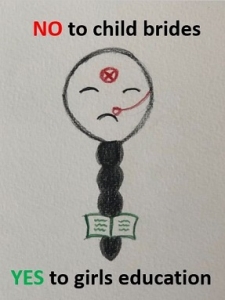Educating girls is one of the most powerful tools to prevent child marriage.
And like-minded NGOs, team up with India Literacy Project to take active measures to prevent this unfortunate practice across various states as and when it is brought to their notice.
From 2020 to 2022, India Literacy Project has helped prevent 31 child marriages and resolved 31 cases of child marriages.
The child marriages have been prevented and resolved across Andhra Pradesh, Jharkhand, Karnataka, Odisha, Tamil nandu and Telangana.
Even though, as per Indian constitution, prohibition of child marriage act, 2006 provides that the minimum age of marriage is 21 years in case of males, and 18 years in case of females, the practice of child marriage is still prevalent.
Sadly, child marriage ends childhood. It violates children’s rights and places them at high risk of violence, exploitation, and abuse.
It negatively influences childrens’ rights to education, health and protection. These consequences impact not just the girl directly, but also her family and community leading to intergenerational cycle of poverty.
Not just the Indian government but also UNICEF’s approach to ending child marriage in India recognizes the complex nature of the problem, and the socio-cultural and structural factors underpinning the practice.
UNICEF and United Nations Population Fund (UNFPA) have joined forces through a global programme to accelerate action to end child marriage, where for the first-time existing strategies in areas such as health, education, child protection, nutrition and water and sanitation have been brought together to address child marriage in a holistic manner.
If you come across any case of child marriage in India, help prevent it by calling call childline 1098.
